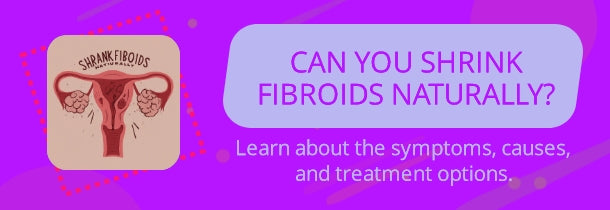
Vitamin D and Green Tea: Natural Allies in Shrinking Fibroids
Is it possibe to shrink fibroids naturally?
Fibroids, or uterine leiomyomas, are benign growths in the uterus affecting up to 70% of women during their reproductive years. While they are not cancerous, fibroids can cause symptoms such as heavy menstrual bleeding, pelvic pain, and fertility issues. For those seeking non-invasive ways to manage fibroids, emerging research highlights the potential of vitamin D and green tea as natural solutions.
Understanding Fibroids and Their Causes
Fibroids' development is influenced by hormonal imbalances, particularly estrogen and progesterone. Other factors, such as genetics, inflammation, and nutrient deficiencies, can also play a role. While traditional treatments include medication or surgery, many women are exploring dietary and lifestyle changes as complementary approaches.
Vitamin D and Fibroids: A Key Connection
Vitamin D is often called the "sunshine vitamin" for its role in maintaining bone health, immune function, and hormonal balance. Recent studies suggest that vitamin D may inhibit the growth of fibroid cells.
- Anti-inflammatory Properties: Vitamin D reduces inflammation, which is a contributing factor in fibroid development.
- Regulation of Cell Growth: It helps regulate cellular proliferation and apoptosis (programmed cell death), preventing the unchecked growth of fibroid tissue.
- Deficiency Risks: Women with low vitamin D levels are more likely to develop fibroids, making supplementation or sun exposure a potential preventive measure.
Green Tea and Fibroids: The Power of EGCG
Green tea, a staple in many cultures, is rich in antioxidants, particularly epigallocatechin gallate (EGCG). EGCG has been studied for its ability to shrink fibroids and alleviate symptoms.
- Antioxidant Effect: EGCG reduces oxidative stress, which contributes to fibroid growth.
- Anti-inflammatory Impact: Like vitamin D, green tea has potent anti-inflammatory properties.
- Hormonal Regulation: Green tea may help balance estrogen levels, preventing excessive stimulation of uterine tissue.
In one study, women who consumed green tea extract experienced a significant reduction in fibroid size and related symptoms over several months.
Combining Vitamin D and Green Tea for Optimal Results
The combination of vitamin D and green tea creates a powerful synergy in managing fibroids. Vitamin D's hormone-regulating effects complement the antioxidant and anti-inflammatory properties of green tea. Together, they may work to reduce fibroid size, alleviate symptoms, and improve overall uterine health.
How to Incorporate Vitamin D and Green Tea into Your Routine
- Vitamin D Sources: Spend 10–30 minutes in the sun daily, consume foods rich in vitamin D (such as fatty fish, egg yolks, and fortified dairy products), or take a high-quality supplement. Aim for a daily intake of 600–800 IU, or as recommended by your healthcare provider.
- Green Tea Consumption: Drink 2–3 cups of green tea daily or consider a standardized EGCG supplement for a concentrated dose.
Precautions and Professional Guidance
While vitamin D and green tea are generally safe, it's essential to consult with a healthcare provider before starting any new supplement regimen, especially if you're pregnant, nursing, or taking medications.
Final Thoughts: Embracing Natural Fibroid Management
Vitamin D and green tea offer promising benefits for women looking to manage fibroids naturally. By addressing inflammation, hormonal imbalances, and oxidative stress, these two powerhouse nutrients provide a complementary approach to traditional treatments.
If you're searching for a holistic and natural way to manage fibroids, incorporating these remedies into your lifestyle could be a game-changer. At NOMAYOMA, we’ve developed a specially formulated remedy that harnesses the power of vitamin D and green tea, proven to support fibroid management.
Click here to shop now and use code WELLNESS15 at checkout to get 15% off your first purchase. Don’t wait to take control of your health and feel your best!
For more insights, practical tips, and solutions for women’s health, explore our blog and empower yourself today!